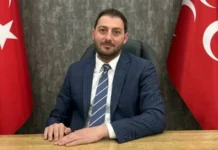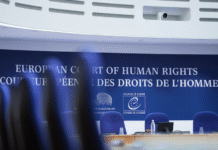Turkey’s Constitutional Court has ordered on Thursday to release jailed journalists Mehmet Altan (65) and Şahin Alpay (74), who was a jailed veteran journalist, columnist of now-closed Zaman daily, ruling that their detention constituted a rights violation.
Eleven jurors voted for and six jurors against the decision made with the court’s plenary ruling. Turhan Günay, the editor-in-chief of the book supplement of Cumhuriyet daily, who made a similar application, was released earlier by a lower court.
Lawyer Veysel Ok, who made the application to the Constitutional Court on behalf of Şahin Alpay, said the top court’s decision could be a milestone for journalist trials in Turkey. “This ruling, which came in the first application after the failed coup attempt, should set a precedent for all trials,” said Ok. “I hope that this ruling becomes the first step of broader rights of freedom of expression in the country,” he added.
Orhan Kemal Cengiz, also lawyer of the Ahmet Altan and Mehmet Altan brothers has said in his Twitter account on Thursday that “I am in a bitter joy as a lawyer who has made their applications to the Constitutional Court. Today, a (release) order had to given not only for Mehmet Altan, but also for Ahmet Altan too.”
Cumhuriyet daily’s Turhan Günay, who made a similar application, was released earlier by a lower court.
“This is the first decision on rights violations on an application since July 15, 2016” lawyer Veysel Ok told online news portal Ahval and stated that “This is an important decision from the perspective of freedom of expression.”
“This decision will be an important turning point for all journalists,” he said. “This is a decision that represents that one-and-a-half years of detention is against the law and will be a lesson to lower courts that a message, a news article, a claim or a written piece will not represent evidence.”
Ok said that he hoped the full decision would contain a precedent applicable to all Turkey’s jailed journalists. “Thus it could open the way for all wrongly imprisoned journalists to be released and bring freedom of expression to Turkey,” he said.
All three journalists were arrested for their alleged links to the Gülen movement. Turkish journalists, particularly those jailed on similar charges, will be paying close attention to the ruling and the legal logic behind the decision, observers said. Turkey’s 17-month-long state of emergency has been criticised by international rights groups for permanently eroding the rule of law and violating political rights.
Fikret İlkiz, a lawyer for the jailed journalists from Cumhuriyet daily, has stated the the decision of the Constitutional have always been is always a jurisprudence for everyone. (Therefore,) we are hopeful for all journalists.”
However, some lawyers have interpreted the the Constitutional Court’s verdict as “tactical decision to prevent the intervention of the European Court of Human Rights (ECtHR) into the cases of journalist in Turkey,” in their social media accounts. The same lawyers have also accused of the Constitutional Court of being “selective and arbitrary” and questioned why the other journalists’ applications were not taken by Court into agenda.
Political scientist and journalist Dr. Şahin Alpay was among the veteran columnists Şahin Alpay worked in several of Turkey’s largest newspapers over the years, including Cumhuriyet, Sabah, and finally Milliyet, where he worked as an editor and wrote until he lost his position due to the 2001 financial crisis. Then, he began lecturing at İstanbul’s Bahçeşehir University, and in 2002 Alpay began to pen columns regularly for Zaman daily; this happened with the encouragement of his friend Etyen Mahçupyan, a Turkish-Armenian writer who served as an adviser to former Prime Minister Ahmet Davutoğlu in 2014.
Alpay was writing for Turkey’s then most circulated Zaman and Today’s Zaman dailies which were illegally seized on March 4, 2016 and then closed after a controversial coup attempt on July 15, 2016 by the Turkish government under the rule of Turkish autocratic President Recep Tayyip Erdoğan.
Mehmet Altan, an economics professor at İstanbul University, is also a columnist known for his liberal views and criticism of the government amid increasing and unprecedented pressure on the media and dissidents. He was targeted by pro-Erdoğan columnist Hilal Kaplan for not being dismissed from his position at the university at a time when hundreds of academics and teachers were being expelled from their posts as part of an investigation into the failed coup attempt. The Constitutional Court’s decision came on the 65th birthday of Mehmet Altan on Thursday.
Ahmet Altan and Mehmet Altan, writer and journalist brothers are among 17 defendants accused of being members of the alleged ‘media arm’ of the Gülen movement. Politicised prosecutors have claimed that Altan brothers and other journalists tried in the case knew of a controversial coup attempt on July 15, 2016 and allegedly conducted propaganda to pave the way for it.
As liberal democrat journalists and writers the Altan brothers are accused of ‘calling for the military coup to take place and of intimate ties with the putschists, as well as senior figures of the Gülen movement,’ by basing on no concrete evidences.
The their discussion together with jailed veteran journalist Nazlı Ilıcak about anti-democratic situation on a TV show on Bugün TV, which was closed by Turkish government under the rule of autocratic President Recep Tayyip Erdoğan two days before the coup attempt as evidence. Defendants said the program did not imply any coup.
Both Mehmet Altan and Ahmet Altan, who were detained on Sept. 10, 2016 were accused of sending ‘subliminal’ messages regarding a failed coup attempt on July 15, 2016 on a TV show a day before the putsch. The prosecutor accuses the suspects of being linked to the Gülen movement and committing crimes on behalf of a ‘terrorist organization without being a member of it.’
The Altan brothers are prominent journalists who have been unequivocally critical of the regime of President Recep Tayyip Erdoğan.
Meanwhile, 14 French public figures have each “adopted” a journalist in Turkey and have written open letters to them in jail, Cumhuriyet daily reported on Thursday. The letter-writers, who are mostly journalists but also include a novelist, a filmmaker and a cartoonist, poured out their feelings in the hope of raising awareness about the plight of their adoptees.
“You are not alone Ahmet,” journalist and writer Sorj Chalandon wrote to investigative journalist Ahmet Şık, who has been detained since Dec. 2016 on terror charges for tweets he wrote. “Your family, your close friends, your friends in Turkey and all over the world, all of us are watching out for your freedom which is being held hostage; we are the birds flying above you and the blowing wind,” he said.
According to a report by online news portal Ahval, award-winning investigative documentarist Marie-Monique Robin wrote inviting jailed Meltem Oktay, a journalist for the closed-down Kurdish-movement news agency DİHA, to visit her in Paris once she is released. “I hope one day you will visit me. I will show you my garden,” she said. “When you come I will show you my office too. It is like a cave: everywhere piles of books up to the ceiling.”
Patrick de Saint-Exupery, the editor of a news magazine, wrote to İnan Kızılkaya, the former editor of now-closed Turkish-language pro-Kurdish newspaper Özgür Gündem. “I cannot understand what has happened to you,” de Saint-Exupery said. “Or rather, I understand too well. You’re a journalist and you wanted to do your job.” “Inan, I’m thinking of you,” he continued. “I’m thinking of these words you shouted in the courtroom: ‘A journalist cannot close his eyes to reality, to events, to tragedies, just because someone is going to be upset or react’. Your words are my words, our words.”
Turkey is the biggest jailer of journalists in the world. The most recent figures documented by the SCF has showed that 242 journalists and media workers are in jails as of January 4, 2018, most in pre-trial detention languishing in notorious Turkish prisons without even a conviction. Of those in Turkish prisons, 215 are arrested pending trial, only 27 journalists remain convicted and serving time in Turkish prisons. An outstanding detention warrants remain for 138 journalists who live in exile or remain at large in Turkey.
Detaining tens of thousands of people over alleged links to the Gülen movement, the government also closed down more than 180 media outlets after the controversial coup attempt.















